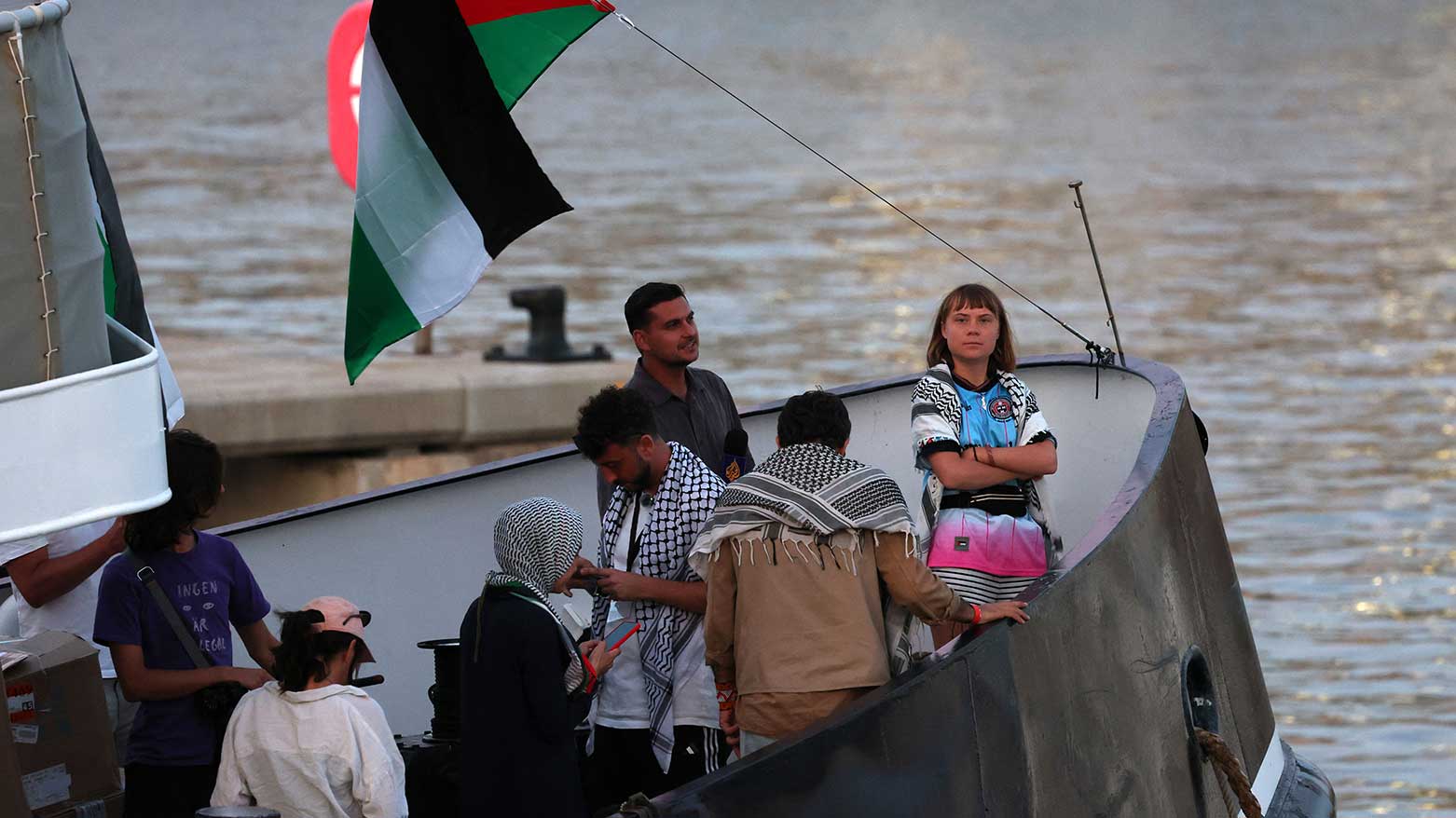Türkiye, Hamas Condemn Israeli Interception of Gaza-Bound Aid Flotilla as ‘Terrorism’
Hamas echoed Ankara’s stance, branding the interception a “crime of piracy and maritime terrorism against civilians.”

ERBIL (Kurdistan24) — Türkiye and Hamas on Wednesday strongly condemned Israel’s interception of a humanitarian flotilla attempting to break the blockade of Gaza, denouncing the action as “terrorism” and a violation of international law.
Türkiye’s Foreign Ministry issued a sharply worded statement after Israeli naval forces stopped the Global Sumud Flotilla in international waters, calling the operation “an act of terrorism that constitutes the most serious violation of international law and endangers the lives of innocent civilians.”
The flotilla, carrying international activists, aid workers, and journalists, was en route to Gaza with humanitarian supplies.
Hamas echoed Ankara’s stance, branding the interception a “crime of piracy and maritime terrorism against civilians.”
The militant group called on “all defenders of freedom in the world” to condemn the arrests of activists and journalists aboard, describing the action as “a treacherous act of aggression that adds to the dark record of crimes committed by Israel.”
According to Israel’s Foreign Ministry, several vessels were boarded and their passengers detained before being transferred to Israeli ports for deportation.
The ministry also released a video showing an Israeli soldier returning the belongings of Swedish climate activist Greta Thunberg, who was among those detained.
“Greta and her friends are safe and healthy,” the statement read.
A Tense Echo of 2010’s Mavi Marmara Raid
The incident immediately drew comparisons to the 2010 Mavi Marmara raid, when Israeli commandos stormed a Turkish-led flotilla attempting to breach the Gaza blockade.
That operation left 10 Turkish activists dead and sparked a major diplomatic rift between Ankara and Jerusalem, straining relations for nearly a decade.
Türkiye’s harsh language on Wednesday suggests the episode could again complicate recent efforts to normalize ties between the two countries.
Broader Geopolitical Context
Israel has maintained a tight naval and land blockade of Gaza since 2007, after Hamas seized control of the coastal enclave. The blockade—criticized by the United Nations and human rights groups as a form of “collective punishment”—restricts the movement of goods and people, with Israel arguing it is necessary to prevent Hamas from smuggling weapons.
The latest flotilla, named “Sumud” (Arabic for “steadfastness”), was organized by international solidarity groups that have long sought to challenge Israel’s blockade through symbolic maritime convoys.
While previous flotillas have been intercepted without casualties, the symbolism of international activists—particularly high-profile figures like Thunberg—on board amplifies the political fallout.
The interception comes amid heightened tensions in Gaza, where Israel’s ongoing military campaign against Hamas has deepened a humanitarian crisis.
According to UN agencies, more than 80% of Gaza’s 2.3 million residents now depend on aid, with shortages of food, medicine, and fuel worsening.
Türkiye, a vocal supporter of the Palestinian cause, has repeatedly called for an end to Israel’s blockade, while Hamas has sought to leverage international solidarity movements to put pressure on Jerusalem.
Israel’s interception of the flotilla, despite the outcry it has triggered, is unlikely to shift the realities on the ground. Such symbolic gestures have little impact on Israel’s military campaign, which remains focused on the complete defeat of Hamas, nor are they expected to derail President Trump’s peace plan for Gaza, which continues to move forward despite mounting criticism.
